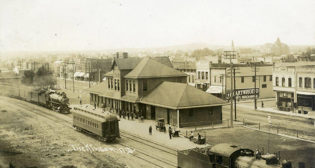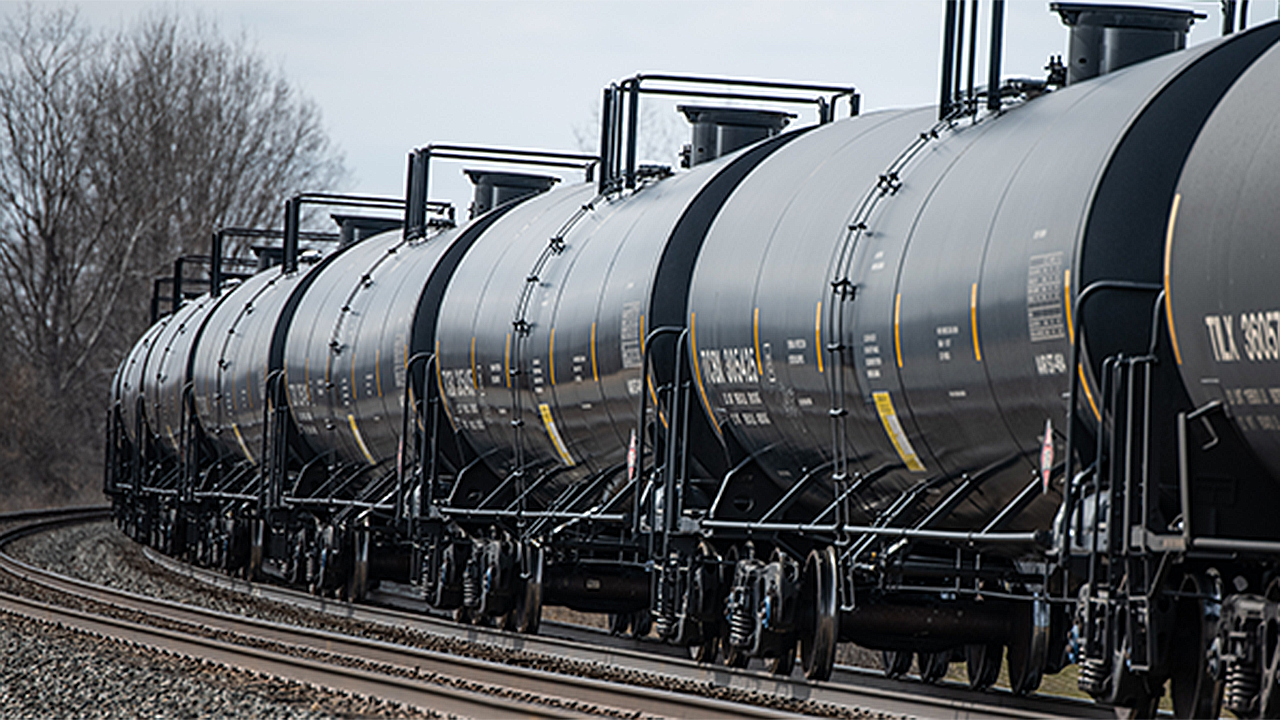
Practice Case or Rate Case?
Written by Dr. William Huneke, Consulting Economist
Association of American Railroads photo
Three days before Christmas, a coalition of tank car owners asked the Surface Transportation Board (STB) what happened to their complaint. The coalition alleges that Union Pacific’s fee for moving empty tank cars to repair facilities is an unreasonable practice. They had filed their complaint on March 31, 2015. They amended their complaint on June 2, 2015. STB started a proceeding and took evidence.
In their Dec. 22, 2023 letter, the coalition wrote: “[We] hereby implore the Surface Transportation Board, once again, to expeditiously complete its review of the record evidence in these cases and issue a final decision or decisions resolving the issues presented. The original complaint was filed by these associations and several individual shippers in Docket No. NOR 42144 nearly nine years [emphasis in the original] ago. The evidentiary records … closed on May 31, 2019. Although the Board requested supplemental briefs on two discrete additional … issues, those briefs were submitted May 21, 2021, well over two years ago.”
The Coalition wants action. So, what is in dispute and why the lengthy delay?
Unlike many shippers who use railroad-owned equipment, chemical shippers use their own private fleet of tank cars. They allege in their complaint that they should be receiving compensation from UP for the use of their tank cars rather than being charged for moving their cars to repair. The fact that UP is not providing compensation while charging a fee is, in their view, an unreasonable practice.
UP counters that: “For all other private cars, Union Pacific charged separately for empty repair moves, unless the empty move directly followed a loaded move on Union Pacific.” (UP Supplemental brief 4-21-21). In other words, UP asserts that it is treating tank cars like other private cars. Furthermore, UP notes that if the car moving for repair had not moved on UP when it was loaded, UP would get no compensation, and would be providing free transportation.
UP goes on to argue that this is not a practice case but really a rate case because the coalition should be complaining that the fee is unreasonable. UP’s point is that it is within its rights to charge a fee for providing a transportation service: That is its business, moving stuff for money.
I can understand why the coalition would prefer that STB treat this dispute as an unreasonable practice case because a rate case would be much more expensive. Moreover, they may suspect they would lose it. But here is one benefit to a rate case: Congress gave STB statutory deadlines for rate cases. Practice cases have no such deadlines, so STB can take its time with practice cases.
Also remember that STB has limited bandwidth. It is a small agency, with about 120 staff with just approximately 20 in the Economics group. STB’s chairman is responsible for the agency’s output. He sets the agenda and drives the work. A large merger or large rate case can choke the agency. Congress set up such a small agency to reflect the largely deregulated nature of the post-Staggers Act railroad industry.
Let’s also remember that STB was dealing with two mergers in 2021 and 2022, CSX and Pan Am and Canadian Pacific and Kansas City Southern. Those distracted STB and sucked up a lot of agency bandwidth.
Some cases are hard with no simple solutions: revenue adequacy, open access, i.e., reciprocal switching because of economic or operational issues. It is hard to resolve them and get a consensus among the members or even a workable majority. That is why I was pleased that STB took an incremental step forward by proposing to implement reciprocal switching for poor service in (Ex Parte 711 Sub No. 2) Reciprocal Switching for Inadequate Service.
Service disputes are like practice disputes, having no statutory deadline, and can linger unless there is some political pressure. The supply chain crisis got a lot of political attention. When the White House is talking about it, STB jumps. Same thing with Amtrak.
A problem with this tank car fee dispute is that it is complicated: Is it an unreasonable practice case or an unreasonable rate case? That is not a simple legal or public policy question. I suspect that there is some sentiment within the agency to decide that it is an unreasonable rate case. And STB often has trouble saying “no” to its stakeholders, so that may be why it has been delaying.
After all the delay, the record is getting stale, which is problematic. It will be interesting to see if STB responds to the Coalition’s letter. I am not holding my breath.

Dr. William Huneke is the former Director and Chief Economist at the Surface Transportation Board. He has more than 40 years’ experience in economics, transportation, railroad regulatory policy, management consulting, business analysis and teaching in the commercial and government sectors. He provides economic consulting on regulatory and arbitration matters. At the STB, Dr. Huneke led the Board’s analytical work and oversaw the collection of economic and financial data. Since leaving the STB, he has provided economic and litigation support to Class I railroads and other private-sector clients. He worked with the OECD (Organisation for Economic Co-operation and Development) to advise the Mexican government on its future rail regulatory policy. He represented the United States at an OECD conference on railroad industry structure. His private-sector experience included executive and management positions at UUNET, Freddie Mac and the Association of American Railroads. Dr. Huneke has taught graduate business courses at the University of Maryland, Robert H. Smith School of Business. He holds a doctorate from the University of Virginia and a B.A. from Swarthmore College.



